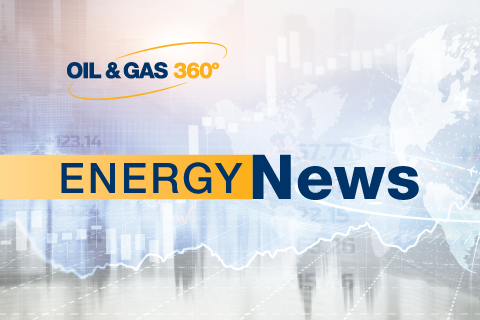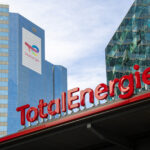(Oil & Gas 360) – A review of recent valuations between international oil companies (IOCs) on both sides of the Atlantic Ocean suggests that size and strategy remain high on the list of investors’ criteria.
One traditional indication is the price-to-earnings ratios (“PE”) for ExxonMobil and Chevron on the American side compared to their European counterparts, Shell, BP, and TotalEnergies.
Interestingly, the PE ratios are directly inverse to the monies invested by the five IOCs in non-fossil fuel and decarbonization investments. For instance, TotalEnergies’ $70 billion in “new energy” investments since 2015 is nearly ten times that of Chevron’s and five and a half times that of ExxonMobil’s.
At the same time, TotalEnergies’ market cap is about a third that of ExxonMobil’s, and slightly over half that of Chevron’s, a ratio that could fall further should Chevron conclude its proposed purchase of Hess.
Exxon produces 3.7 million barrels of oil equivalent a day (boe/d), Chevron at 3.3 million boe/d, Shell at 2.9 million boe/d, TotalEnergies at 2.5 million boe/d, and BP at 2.4 million.
The ratios further suggest that investors like the scale, size, and security of American producers. Not only is the Permian considered a world-class basin where ExxonMobil and Chevron work, but its location on the continental United States makes it less exposed to some of the geopolitical risks faced by their European counterparts.
Similarly, United States is generally considered to have a clearer regulatory framework with fewer restrictions on emissions, and as for generating free cash flow, European companies have even been forced to pay windfall profits tax during particularly strong earnings periods.
Strategy clarity appears to command a premium as well. With their focus on resource extraction, ExxonMobil and Chevron have a clearer investment thesis than those wrestling with their strategy as it relates to integration efforts in areas such as power generation and decarbonization efforts.
That focus has resulted in better fiscal discipline and production growth. The resulting higher stock prices and balance sheet strength allow American IOC’s to make major acquisitions in all-stock deals virtually impossible in Europe due to the European companies’ soft stock prices.
For instance, ExxonMobil purchased both Pioneer Natural Resources ($60 billion) and Denbury (nearly $5 billion) in all-stock deals. Chevron did the same with its purchase of PDC ($6 billion) and is looking to do the same in its acquisition of Hess for ($53 billion).
By Jim Felton for oilandgas360.com








